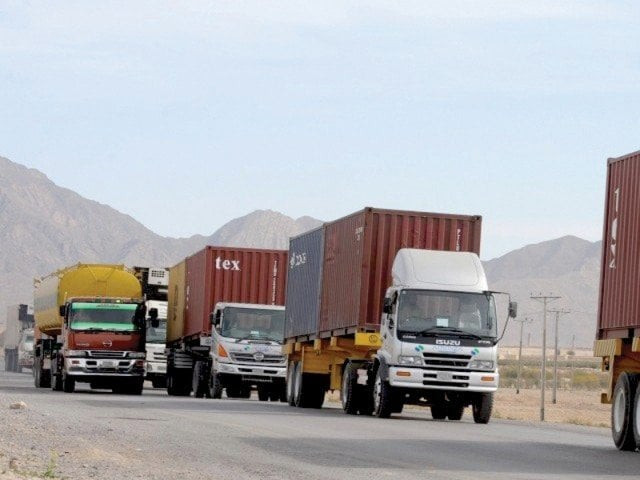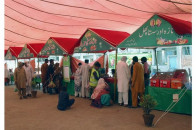Pakistan commits to freer South Asia trade
Dar says he doesn’t want to speak negatively as to who blocked such efforts in the past

PHOTO: FILE
“In the forthcoming trade policy, the government is committed to lowering tariff and non-tariff barriers to trade,” said Finance Minister Ishaq Dar while addressing the concluding session of eighth South Asia Economic Summit – a track-II event jointly organised by think tanks from the regional countries.
He said the government remains committed to strengthening regional ties through important energy, transport and logistics agreements with Central and South Asia. Dar heads a cabinet committee that is giving final touches to the country’s three-year trade policy framework.
The finance minister’s statement coincided with the announcement that Pakistan and India will resume composite dialogue.
“Pakistan wants trade liberalisation and has made many efforts but I do not want to make a negative statement about who blocked all such efforts in the past,” said Dar while implying that it was India that broke the trade liberalisation process earlier.
Last year, both the archrivals had almost concluded a bilateral trade liberalisation agreement but things came to a grinding halt after Narendra Modi took reins of New Delhi. Pakistan had agreed to abolish the Negative List of 1,209 items, which cannot be imported from India. In return, New Delhi was willing to exclude textile goods from its prohibitive list.
Dar also highlighted the key issues that need to be resolved for true trade liberalisation. He said improving trade facilitation, trade in goods and services, non-tariff barriers, sensitive lists under South Asian Free Trade Area (maintained by India), harmonisation of standards, customs procedures, transport connectivity, trade financing, and exchange rate policies have to be addressed.
“South Asia faces the challenge of making trade and its gains inclusive and to link trade policies with the poverty reduction strategies of the South Asian governments,” he said. Dar also underlined cooperation in establishing regional capital markets, cooperation in banking system and establishment of South Asian Development Bank.
The finance minister also sought regional cooperation to tackle the climate change issue, which, he said, was now threatening food security. “Challenges coming from climate change are trans-boundary in nature and we alone cannot handle the challenge,” he added.
Dar said Pakistan would not take any responsibility for deteriorating environment. “Pakistan cannot give an emission reduction plan, until it reaches the peak. Pakistan is producing not more than 1.5% of total power generation from coal and it cannot be bracketed with countries that generate half of their power by using coal,” he added.



















COMMENTS
Comments are moderated and generally will be posted if they are on-topic and not abusive.
For more information, please see our Comments FAQ